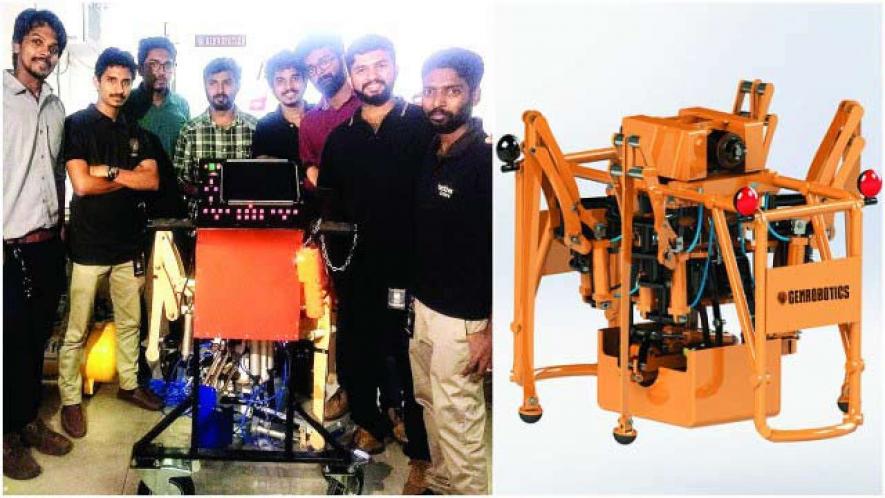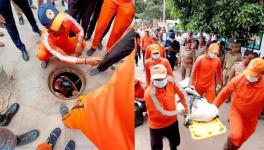Kerala Leads Again: State Finds Robotic Solution to Sewer Deaths

Image Courtesy: DNA India
As the campaigns go on to mark an end to the age-old practice of manual scavenging across the country, the Left Democratic Front government in Kerala is all set to replace manual workers with robots to clean up the sewer holes in the state.
On Thursday, a MoU was signed between Kerala Water Innovation Zone under Kerala Water Authority (KWA) and Kerala Startup Mission (KSUM) at the Chief Minister’s office in Thiruvananthapuram for the transfer of technology and products, including the use of the robots. The MoU was signed in the presence of Chief Minister Pinarayi Vijayan, Minister for Water Resources, Mathew T Thomas and others including the government officials and eight representatives from Genrobotics.
The robot, ‘Bandicoot’, developed by the startup firm Genrobotics will be used for cleaning sewer holes, mostly done by manual workers at present. The robot will take over the work by cleaning the sewer holes in Thiruvananthapuram during the coming Attukal Pongala festival in the city in March.
“The robot has four limbs and a bucket system attached to a spider web looking extension, which can go inside the manhole. After shovelling the heap of garbage at the bottom of the manhole, it will be collected by using the bucket system before lifting it upward. It also has Wi-Fi and Bluetooth modules”, a statement said.
KSUM had funded the project by Genrobotics, which conducted a field study to find a solution for manual scavenging.
The profound move from Kerala came amidst the reports that seven manual scavengers have died in the first seven days of 2018. While the entire world celebrated on January 1, four workers in Mumbai died while fixing a sewer line which ran 10 m below the ground level in the city. While they were being lifted out of the sewer by a crane, the cable broke, resulting in the death of three workers on the spot. One of the rest two surviving workers died the next day and the other one survived with severe injuries.
In another case, three workers suffocated to death on January 7, while clearing a blocked manhole Bangalore. On Sunday morning, four of the workers were cleaning the manhole in a residential area in the city. One worker went inside the manhole and did not turn up. Seeing this, two others also got in and did not come up. Realising that something was wrong, the fourth worker who was standing nearby raised an alarm and nearby residents alerted the fire and emergency services personnel. After an hour of a rescue operation, their bodies were recovered from the manhole.
These are not isolated cases; thousands of workers are forced into doing these manual scavenging works without having any kinds of safety gears.
According to the data submitted in the Rajya Sabha by Union Minister for Housing and Urban Affairs Hardeep Singh Puri, only 323 deaths were reported across the country since 1993 for manual scavenging. But members of the Safai Karamchari Andolan (SKA) pointed out that the figure was not even close to the real picture. During the past ten years, 1,340 deaths were reported across the country, the SKA survey revealed.
Though the campaigns of Magsaysay award winner Bezwada Wilson and SKA activists to eradicate manual scavenging are on the ground, the practice still continues unhindered and claims lives of workers very often.
Get the latest reports & analysis with people's perspective on Protests, movements & deep analytical videos, discussions of the current affairs in your Telegram app. Subscribe to NewsClick's Telegram channel & get Real-Time updates on stories, as they get published on our website.
























